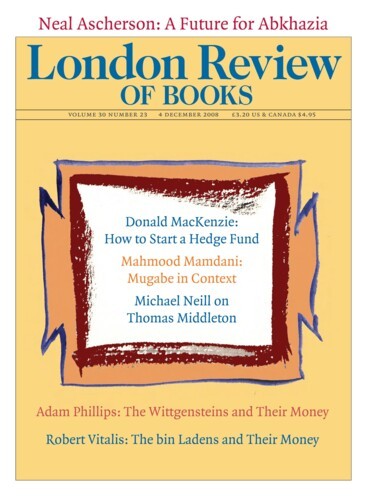Diary: The Death of Stenography
Leah Price, 4 December 2008
Stenography is dying out; so are stenographers. When I mention that I’m working on the history of shorthand, people tell me that their mother knew shorthand, or their grandmother, or their husband’s first wife. Google ‘stenography’ and you’ll find obituaries from small-town newspapers. Only bloggers now use the word, the new media’s name for what the old...





